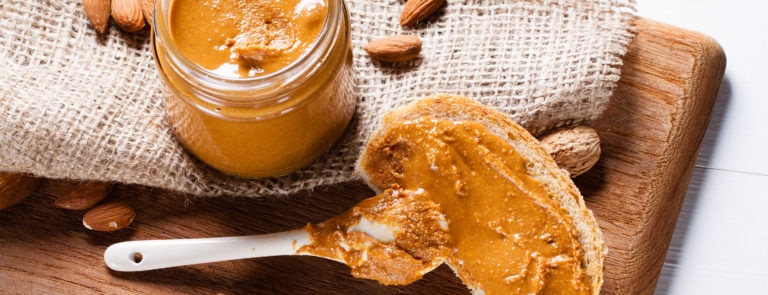15% off £35 OR 20% off £45
Code:FAVES
Iodine: function, foods, deficiency and supplements

Iodine is important for thyroid hormones, the brain, skin and more. This piece is filled with information about iodine including food sources and deficiency.
Summary
1What is iodine and what does it do?
Iodine is an essential mineral needed to make thyroid hormones. These are important for: cell growth, brain development in early life, regulation...
2What does iodine do in the body?
Iodine is critical for the healthy functioning of your body’s thyroid gland – in fact, 70-80% of your body’s iodine is stored in the thyroid...
3Which foods are the best sources of iodine?
The best sources of iodine are: all seawater fish, especially white fish such as haddock and cod, shellfish, for example prawns and crab, dairy...
Find out all about iodine, including what it does, how much you need, where to find it and who might need to supplement their diet
Written by Jack Feeney on January 2, 2019 Reviewed by Dr Sarah Schenker on January 23, 2019
What is iodine and what does it do?
Iodine is an essential mineral needed to make thyroid hormones. These hormones are important for:
- cell growth
- brain development in early life
- regulation of metabolism
The European Commission reports that iodine can also contribute to normal cognitive function, maintain healthy skin, and support the functioning of the nervous system.1
Iodine is mainly found in fish and dairy products. It’s also highly concentrated in certain marine algae, like kelp. However, if you eat seaweed frequently, you could risk getting too much iodine because it is toxic in large doses.2
Most people get enough iodine in their diets if they eat fish or dairy foods. However, schoolgirls, pregnant women, vegetarians and vegans are at risk of deficiency in the UK.3 Iodine is available in certain multivitamins and also in algae tablets, in which the iodine levels are restricted.
What does iodine do in the body?
Iodine is critical for the healthy functioning of your body’s thyroid gland – in fact, 70-80% of your body’s iodine is stored in the thyroid. The thyroid is responsible for the release of the two thyroid hormones, both of which require iodine to work:4
- thyroxine (T4)
- triiodothyronine (T3)
These hormones control the rate of cell metabolism – the speed at which your cells function – keeping us alive. Thyroid hormones have essential roles to play throughout the body, including:5,6
- brain development, including during pregnancy
- heart function
- muscle control
- mood
- digestive function
An iodine deficiency means the body can’t make enough thyroid hormones, and this can lead to hypothyroidism.7
How much iodine do I need?
Adults need 140mcg of iodine a day.8 However, if you are pregnant or breast-feeding, your body needs more: a total of 200mcg of iodine a day.9
Do children need iodine?
Iodine is important for your child’s growth and development. They need:10
- 1-3 years – 70mcg a day
- 4-6 years – 100mcg a day
- 7-10 years – 110mcg a day
- 11-14 years – 130mcg a day
- 15-18 years – 140mcg a day
Which foods are the best sources of iodine?
The best sources of iodine are:11
- all seawater fish, especially white fish such as haddock and cod
- shellfish, for example prawns and crab
- dairy foods, including cow’s milk, yoghurt and cheese
- eggs
- meat and poultry
- seaweed
- nuts
- wholegrains
- fruit and vegetables
Who is at risk of an iodine deficiency?
People who don’t eat fish or dairy foods – and in particular vegans – could be at risk of an iodine deficiency.14 Pregnant women and schoolgirls are reported to have such low intakes of iodine, that the World Health Organisation now classifies the UK as mildly iodine-deficient.15
What are the symptoms of an iodine deficiency?
A lack of iodine can trigger a condition called underactive thyroid, known as hypothyroidism. Symptoms include:16
- tiredness
- weight gain
- feeling cold
- depression
- difficulty concentrating
In pregnancy, iodine deficiency can interfere with the normal brain development and growth of the unborn baby. In fact, a serious iodine deficiency is considered the most common cause of preventable brain damage in children worldwide.18
What happens if I consume too much iodine?
Too much iodine, as well as too little, can interfere with your thyroid function. For some, it causes goitre or hypothyroidism, with the same symptoms as above, but for others it can lead to hyperthyroidism, in which the body produces too many thyroid hormones.19
Symptoms of hyperthyroidism include:20
- anxiety
- sweating
- rapid heart rate
- increased appetite but also weight loss
- restlessness
When should I take iodine supplements?
You may need to take iodine supplements if you are:
- vegan or vegetarian
- pregnant or breast-feeding
- don’t eat fish or dairy foods
Supplements containing up to 500mcg of iodine a day is considered safe for adults, according to the NHS.21
Should women take an iodine supplement during pregnancy?
It’s really important that you get enough iodine during pregnancy to support your baby’s developing brain – and ideally from a few months before you get pregnant. If you don’t eat fish or dairy foods, consider an iodine supplement or a pregnancy multivitamin that contains iodine.22
Do not consume more than 500mcg a day, as the NHS warns this could cause thyroid problems for your baby.23,24
What are the potential benefits of taking an iodine supplement?
Iodine is mainly given to help prevent and treat iodine deficiency disorders, and to encourage normal brain development in children. But a 2017 study in Frontiers in Immunology found that healthy iodine levels can also help regulate the body’s immune system.25
Advice is for information only and should not replace medical care. Please check with your GP before trying any remedies.
- European Commission. EU register of nutrition and health claims made on foods http://ec.europa.eu/food/safety/labelling_nutrition/claims/register
- British Dietetic Association. Iodine https://www.bda.uk.com/foodfacts/Iodine.pdf
- https://www.bda.uk.com/foodfacts/Iodine.pdf
- British Thyroid Foundation. Your Thyroid Gland http://www.btf-thyroid.org/information/your-thyroid-gland
- ScienceDirect. Iodine Deficiency https://www.sciencedirect.com/topics/biochemistry-genetics-and-molecular-biology/iodine-deficiency
- Society for Endocrinology. Thyroid gland http://www.yourhormones.info/glands/thyroid-gland/
- Chung HR. Iodine and thyroid gland https://www.ncbi.nlm.nih.gov/pmc/articles/PMC4049553/
- Public Health England. Government Dietary Recommendations https://assets.publishing.service.gov.uk/government/uploads/system/uploads/attachment_data/file/618167/government_dietary_recommendations.pdf
- British Dietetic Association. Iodine https://www.bda.uk.com/foodfacts/Iodine.pdf
- Public Health England. Government Dietary Recommendations https://assets.publishing.service.gov.uk/government/uploads/system/uploads/attachment_data/file/618167/government_dietary_recommendations.pdf
- https://www.bda.uk.com/foodfacts/Iodine.pdf
- https://www.bda.uk.com/foodfacts/Iodine.pdf
- NHS. Iodine https://www.nhs.uk/conditions/vitamins-and-minerals/iodine
- https://www.bda.uk.com/foodfacts/Iodine.pdf
- Bath SC, Rayman MP. A review of the iodine status of UK pregnant women and its implications for the offspring https://www.ncbi.nlm.nih.gov/pmc/articles/PMC4442695/
- British Thyroid Foundation. Your Thyroid Gland http://www.btf-thyroid.org/information/your-thyroid-gland
- https://www.bda.uk.com/foodfacts/Iodine.pdf
- ScienceDirect. Iodine Deficiency https://www.sciencedirect.com/topics/biochemistry-genetics-and-molecular-biology/iodine-deficiency
- National Institutes of Health. Iodine: Fact Sheet for Health Professionals https://ods.od.nih.gov/factsheets/Iodine-HealthProfessional/
- MedicineNet. Hyperthyroidism Symptoms, Causes, Treatments, And Diet https://www.medicinenet.com/hyperthyroidism/article.htm
- NHS. Iodine https://www.nhs.uk/conditions/vitamins-and-minerals/iodine
- https://www.bda.uk.com/foodfacts/Iodine.pdf
- https://www.nhs.uk/conditions/vitamins-and-minerals/iodine
- Health Supplements Information Service. Iodine https://www.hsis.org/supplements-az/i/
- Bial MY, et al. A Role for Iodide and Thyroglobulin in Modulating the Function of Human Immune Cells https://www.ncbi.nlm.nih.gov/pubmed/29187856
Related Articles
Shop by wellness goal
Sign up for exclusive offers
Plus, get expert advice to support your health & wellness straight to your inbox when you sign up to Holland & Barrett emails.
Read our
privacy policy













